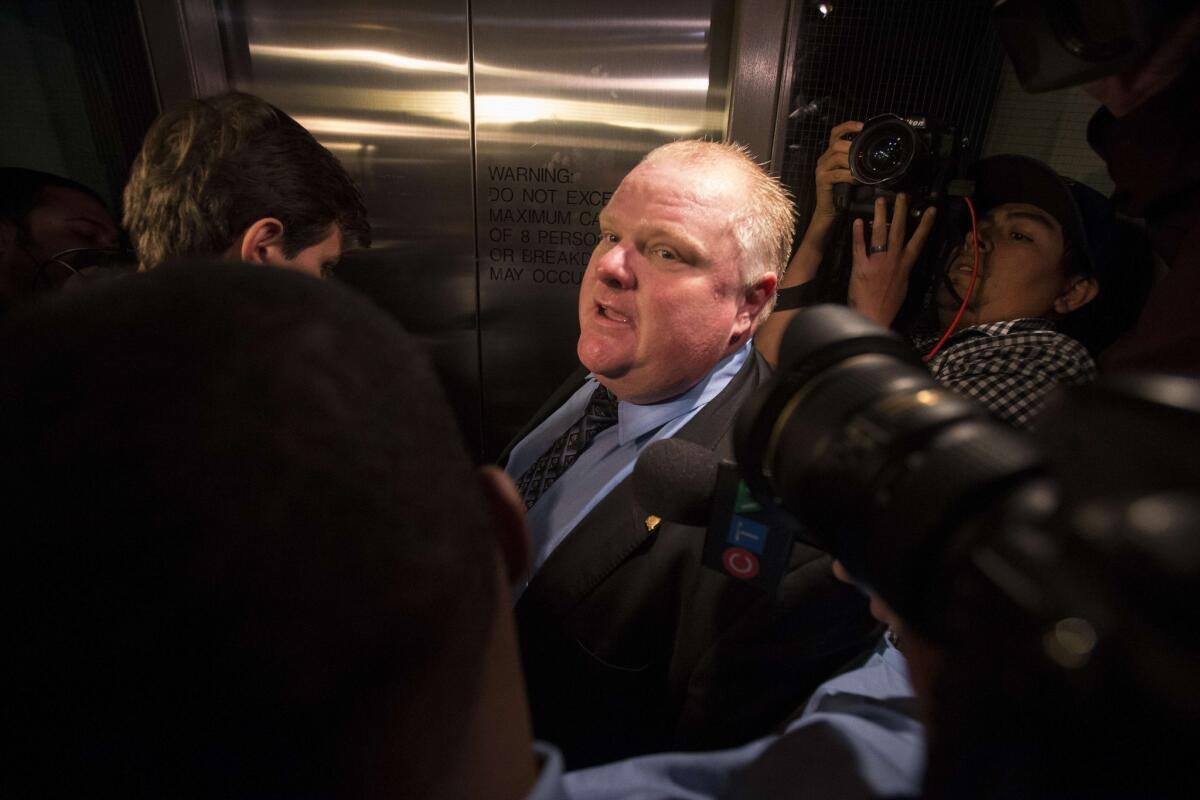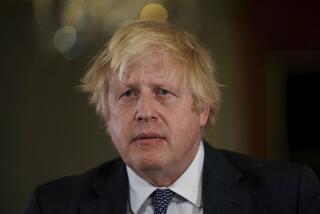Toronto mayor: Bad boy Rob Ford puts Canada in global spotlight

Toronto Mayor Rob Ford may be a national embarrassment, but his scandalous behavior -- smoking crack cocaine, threatening murder and making lewd remarks on live television -- is the biggest international news story out of Canada this century, Canadian Press reported Thursday.
If the foreign media coverage of Ford’s antics were sold as advertising space instead, it would have generated at least $1.1 billion in revenue, the news agency said of analysis by Influence Communications of Montreal.
News stories about Ford in the month of November would have filled nearly four years of airtime if read out consecutively on television or radio, the media-monitoring company calculated.
And the global coverage, if run in a single daily newspaper, would have filled every issue for six consecutive years, Influence said.
“No story in the 21st century has given Canada this much exposure,” the media company’s president, Jean-Francois Dumas, told the National Post.
“It’s not just the tabloids. It’s not just People. It’s the New York Times, the New York Post. All sorts of media covered this. It became a social phenomenon,” Dumas said.
The spotlight on Ford has dimmed a bit in the two weeks since the Toronto City Council voted to strip the mayor of most of his powers, although he refuses to resign or take a leave of absence for substance-abuse counseling.
But the allegations continue to mount, including disclosures from police investigation files made public Wednesday that Ford apparently tried to buy an incriminating video from suspected drug dealers that shows him smoking crack, the Toronto Star reported.
Ford denied such a video existed when the Toronto Star and the gossip website Gawker first reported having viewed it in May. After Toronto Police Chief Bill Blair said in early November that a copy of the video had been found during investigation of another drug case, Ford admitted on live television to having smoked crack “in one of my drunken stupors” about a year earlier.
In its coverage of the 500-plus police documents released by court order, the Globe and Mail said it had ferreted out five new allegations related to Ford from the investigation reports on his friend and driver, Alexander Lisi, who faces trial on drug and extortion charges.
Transcripts of wiretapped phone calls suggest Ford also used heroin in the company of suspected drug dealers and that one of the men who reportedly tried to blackmail the mayor with the video evidence was kidnapped by those who sought to recover the video for the mayor, the newspaper said.
During a sports radio call-in show broadcast from Washington on Thursday, Ford called the media reports of his attempt to buy the video “an outright lie.” Although the talk show was mostly focused on NFL football, Ford managed to squeeze in digs at “the politically correct people” who consider the Washington Redskins’ name offensive to Native Americans and to belittle women who take part in office football pools who he said make their choices based on which team’s players are the best-looking.
The disgraced but undaunted mayor also made light of having been ranked by Time magazine as author of the second-most memorable apology by a public figure this year.
“Not No. 1?” he said in jest when asked about making the list during the radio show. That dubious honor went to celebrity chef Paula Deen for her tearful mea culpa for having spoken racial slurs.
ALSO:Car bomb blast targets Yemen Defense Ministry; 25 killed
Karzai accuses U.S. of civilian deaths in November drone strike
Kerry opens Middle East trip discussing peace, Iran with Netanyahu
Twitter: @cjwilliamslat
More to Read
Sign up for Essential California
The most important California stories and recommendations in your inbox every morning.
You may occasionally receive promotional content from the Los Angeles Times.










